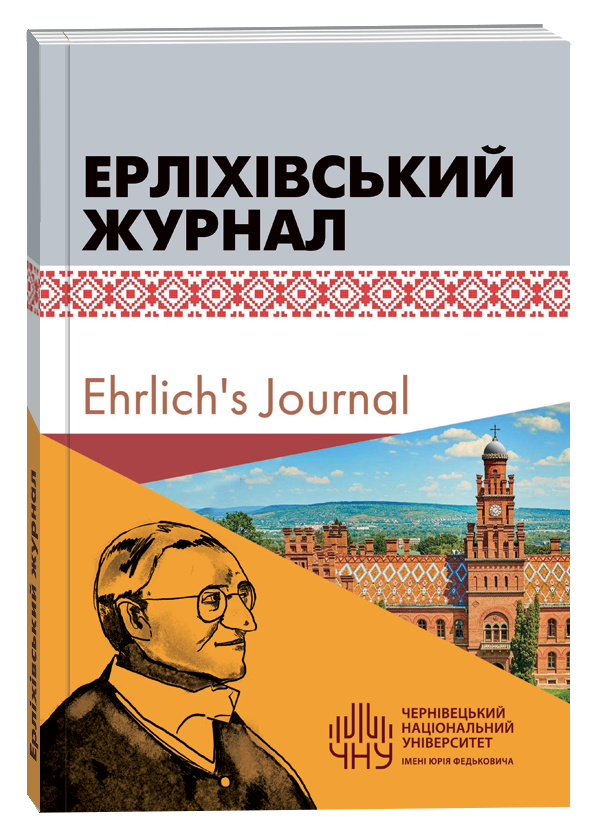BASIC PROCEDURAL PRINCIPLES IN MODERN INTERNATIONAL LAW
DOI:
https://doi.org/10.32782/ehrlichsjournal-2022-6.02Keywords:
principles of international law, general international law, procedural principles of law, general principles of law, general principles of international law.Abstract
In this research it will be that basis of existence of the international legal system alongside are judicial principles general for the basic modern legal systems of the world. The especially important role of judicial principles is grounded in a right for international agreements, right international organizations, international rule-making, and also, that on the modern stage of development of humanity basic principles of international law also are strong legal foundation in lawmaking and law enforcement activity at an international level. Historic character of judicial principles is characterized by conformity to law, accordance of debatable, variable social relations that are their article of adjusting. In particular, new bases that become the consequence of development of previous appear: proportion, universality, professionalness and competence of court, responsibility of the state for providing of right of judicial defence, responsibility of the state for harm caused by a crime, et cetera. Throughout the history of the existence and relationship of international and domestic law, perhaps the greatest role in their interaction has been played by the general principles of law common to both systems. The effect of general principles of law in both systems was clearly manifested in procedural law. Each national legal system, for objective reasons, has its own fundamental principles, which in most cases are common, regardless of the specifics of individual legal systems. This primarily applies to procedural principles. In particular, common principles play an important role in the EU, where Art. 6 of the EU Treaty, recognizes the fundamental principles of the Union as common principles of all Member States and respects the fundamental procedural rights guaranteed by the ECHR and those arising from the constitutional traditions common to the Member States and treats them as general principles of EU law. Thus, the key ones include: the principle of innocence, subsidiarity, efficiency of justice, proportionality, legal certainty, freedom of discretion, and to “special”, those that are somewhat technical in nature, for example: “special agreement (law) takes precedence over general”; “there is no retroactive agreement (law)», “no one can transfer rights more than he has”, etc. The basic principles enshrined in an international treaty cannot provide for all the ever-changing realities of life, but it remains possible to interpret them in the light of them, without prejudice to the interests of states. Man-centeredness is considered to be the ideological content of the basic common procedural principles.
References
Віденська конвенція про право міжнародних договорів 1986 р. Офіційний веб-портал Верховної Ради України. URL: http://zakon2.rada.gov.ua/laws/show/995_118
Oppenheim L. The Project Gutenberg eBook of The Future of International Law. London : Oxford: At the Clarendon press, 1921. 69 р.
Статут Ліги Націй. Повний текст українською. URL: https://yurist-online.org/publ/istoricheskie_ dokumenty_istorichni_dokumenti/statut_ligi_nacij_ustav_ligi_nacij/2-1-0-1227
Historical Review of Developments relating to Aggression. United Nations New York, 2003. URL: www.un.org/law/ books/HistoricalReview-Aggression.pdf
Конституція України. Закон від 28.06.1996, № 254к/96-ВР. Відомості Верховної Ради України (ВВР). 1996. № 30. Ст. 141.
Андрущенко К. А. Правова природа концепції “margin of appreciation” : дис. … канд. юрид. наук : 12.00.11 / Андрущенко Катерина Анатоліївна. Київ. нац. ун-т ім. Тараса Шевченка. Київ, 2017. 226 с.
Конвенція про захист прав людини і основоположних свобод 04.11.1950. URL: http://zakon2.rada.gov.ua/ laws/show/995_004
Case of Bulut v. Austria – Judgement. Application no. 17358/90. URL: https://www.legal-tools.org/en/browse/ record/c39858/
Case of United States – Measures Affecting Imports of Woven Wool Shirts and Blouses. WT/DS33/ AB/R. Adoptet 23 May 1997. At 14. Footnotes omitted. URL: https://www.wto.org/english/tratop_e/dispu_e/33abr.pdf
Міжнародне публічне право: підручник / за ред. В. М. Репецького. Київ : Знання, 2012. 437 с.
Гудима Д. Європейський суд з прав людини: реформування триває (Протокол № 15 до Конвенції). Вісник Національної академії правових наук України. 2013. № 3 (74). С.15–22.
Маник А.З. Ідеї концепції «живого» права Євгена Ерліха у розвитку сучасного міжнародного права : дис. … канд. юрид. наук : 12.00.11 / Маник Альона Захарівна ; Київський національний університет імені Тараса Шевченка. Київ, 2018. 201 с.
Case of Oil Platforms (Iran v UN) 2003р. URL: https://www.icj-cij.org/en/case/90







